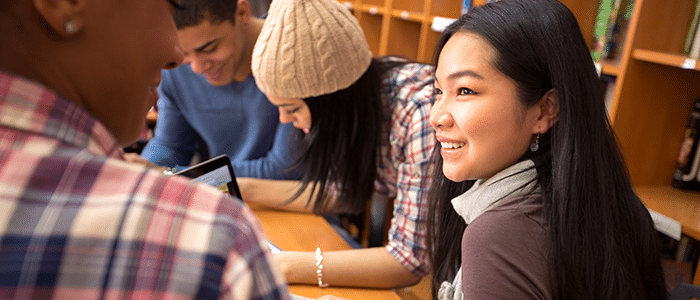
Only a decade or two ago, the concept that students could interact with their peers from around the world on a regular basis was hardly feasible. But with the rise of social media and communication technologies like Skype and WhatsApp, modern students are more connected to the world around them than ever before. With that, the importance of international education increased.
Consider the implications this has for society in the future. If we are engaging with other cultures, beliefs systems, and values on a regular basis, how are our communication styles changing? How are we adapting to not just cope with, but capitalize on, the changing dynamics of global awareness? And most importantly, how are we preparing young people to be the global leaders of tomorrow?
International exchange programs have long been a method for increasing empathy and awareness across cultures and borders, and this is still the case today. That said, plenty of adults and parents would be forgiven for thinking that international exchange is less important today, since youth are able to regularly interact with global peers via the internet.
But for those that have experienced the benefits of international education — as a host family, an educator or as an exchange student themselves — it’s clear that the opposite is true. While social media does allow for more ease in global communication, it is certainly not always a conduit for intelligent and empathetic discourse. Students today may regularly engage with other belief systems and cultures, but rarely do so in a way that builds genuine understanding and connection. So how does international education bridge the gap?
A Foundation of Respect

Simply put, international education creates a strong foundation of respect on which productive global discourse can occur. In fact, a number of studies indicate that having personal, one-on-one interaction with people from other countries and cultures enhances our ability to communicate effectively, solve problems collaboratively and engage with difficult or complex global issues with tact.
Despite the incredible benefits that technology provides for today’s youth, it simply doesn’t fully replace the enormous benefits of interpersonal experience with global cultures. Inviting the opportunity to broaden the worldview of America’s youth — especially within the classroom — is one of the most profound ways we can help prepare students to tackle the challenges that face them in the near and far future.
An Enhanced Learning Environment

While the benefits of studying abroad are plainly obvious for exchange students themselves, inviting international students into an American classroom enhances the experience of all students. Why? Because having even one exchange student in a classroom instantly expands the collective perspective of a group of students, and establishes a multicultural learning environment that enhances all students’ experiences.
Consider how an exchange students’ lived experiences could provide greater insight into discussions about world history or global culture. Students studying with a student from another country have a unique opportunity to ask questions, discover similarities and unpack differences in a safer and more respectful environment.
Educators are able to mediate conversations between students of varying opinions and perspectives in real-time, rather than attempting to undo the damage of false or incomplete information gained from other areas (like the internet). While no exchange student should feel the burden of being a spokesperson for their entire culture, having a foreign student in a classroom is a great way to increase curiosity, patience, and empathy for other perspectives.
Personal Development

Students in high school are actively preparing to set off into the world on their own, and are regularly learning strategies and mechanisms through which they’ll solve their own problems as well as those of their society. Whether a student embarks on a semester or year abroad themselves, or simply befriends an exchange student studying at their school, these experiences naturally enhance the personal development of young people — especially during a students formative years in which most exchange periods occur.
Consider the skills exchange students and their friends are actively building throughout their experience — conflict resolution, emotional self-care, collaborative problem-solving and even presenting opinions in a respectful manner. Exchange students are not the only ones learning about US culture — American students are constantly learning to take a broader view of their perspectives and opinions when asked questions about their experiences.
We invite you to read more about hosting a foreign exchange student. If you have specific questions about hosting, check out our host family FAQ page. You can also read testimonials from our past and current host families. When you feel ready, complete our host family interest form and our area representative will get in touch with you.
You can also get involved by joining our team of Area Representatives! Help match host families and exchange students and bring the world closer together, while making a supplemental income.
References:
New Study Reports on Benefits of International Students on U.S. Students
The Advantages of Being in a Multicultural Classroom

